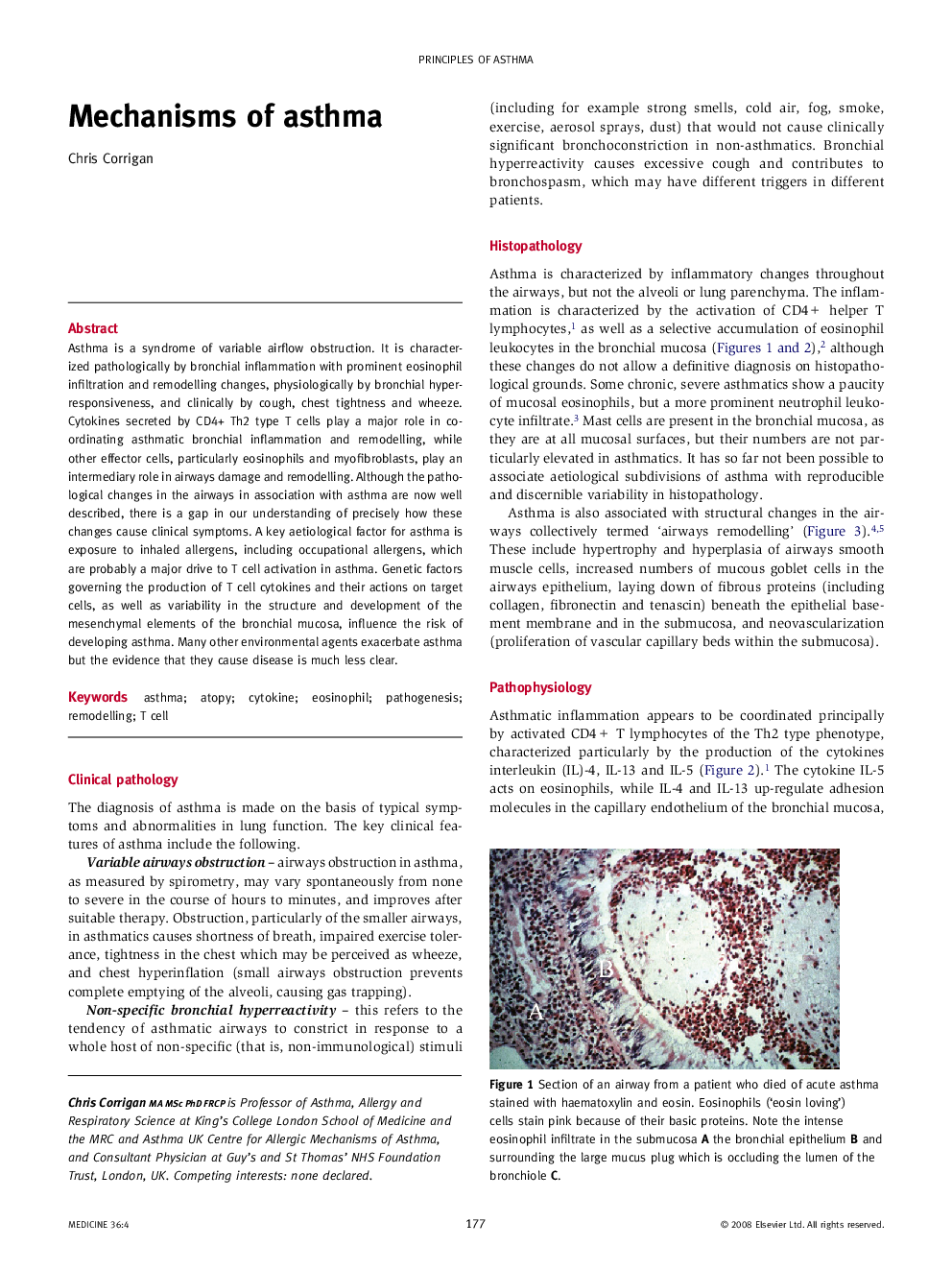| Article ID | Journal | Published Year | Pages | File Type |
|---|---|---|---|---|
| 3805634 | Medicine | 2008 | 4 Pages |
Asthma is a syndrome of variable airflow obstruction. It is characterized pathologically by bronchial inflammation with prominent eosinophil infiltration and remodelling changes, physiologically by bronchial hyperresponsiveness, and clinically by cough, chest tightness and wheeze. Cytokines secreted by CD4+ Th2 type T cells play a major role in coordinating asthmatic bronchial inflammation and remodelling, while other effector cells, particularly eosinophils and myofibroblasts, play an intermediary role in airways damage and remodelling. Although the pathological changes in the airways in association with asthma are now well described, there is a gap in our understanding of precisely how these changes cause clinical symptoms. A key aetiological factor for asthma is exposure to inhaled allergens, including occupational allergens, which are probably a major drive to T cell activation in asthma. Genetic factors governing the production of T cell cytokines and their actions on target cells, as well as variability in the structure and development of the mesenchymal elements of the bronchial mucosa, influence the risk of developing asthma. Many other environmental agents exacerbate asthma but the evidence that they cause disease is much less clear.
